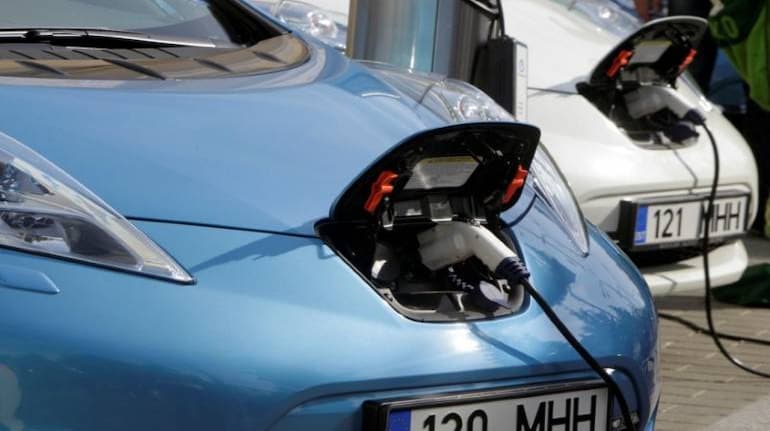



Prime Minister Narendra Modi has raised questions on car-subsidy framework of Faster Adoption and Manufacturing of (Hybrid &) Electric (FAME) vehicles scheme, thereby refusing to share its details with auto industry at a recently held global mobility summit.
According to sources, Modi held a review meeting days before the Move summit and took stock of the electric mobility industry in India.
“In that meeting, PM Modi asked what the problem was regarding slow offtake of EVs in India,” said a source who added, “To which officials replied that EVs are expensive due to high battery cost”.
In the absence of any measure to bring down the cost of batteries in FAME-II scheme, Modi refrained from talking about it at the summit, said another person.
“Thus, the entire process of disclosing FAME-II was stalled by PM at Move,” he added.
The summit was organised by government think tank National Institute for Transforming India (NITI) Aayog on September 7-8, 2018 to delve into mobility solutions to cater to the changing transport dynamics.
“We will soon put in place a stable policy on electric vehicles and other alternative vehicles... we will do whatever it takes because it is our commitment to heritage and our future generations,” Modi had said during the summit.
According to another person in the know, officials present in the meeting informed the PM about modified special incentive package scheme (M-SIPS) by ministry of electronics and information technology.
“But nobody has been able to claim subsidy under it due to lengthy processes… People find it tough to prove that their investment has reached Rs 100 crore or Rs 200 crore. The new entrants are definitely not able to do it,” said the person.
M-SIPS, a modified version of SIP scheme of the electronics and IT ministry was notified in 2012 to “attract investments in electronic manufacturing”. The scheme provides a 20 (or 25 percent) percent capital subsidy on new, and expansion of, electronic manufacturing projects located in special economic zones (or non SEZs).
The incentives that are provided for 10 years are “reimbursed” by the government to the person making investment in the range of Rs 1 crore to Rs 5,000 crores depending upon the type of project.
According to officials, the proposal by PMO is difficult in execution as raw materials like lithium ion and magnet strips are not available in the country.
“How will the production happen in India? And even if we are able to somehow manufacture it, the raw material still has to be imported because we don’t have it naturally,” said an official who questioned, “So a battery pack of 1kWh will cost Rs 20,000 in China but Rs 40,000 in India. Who will buy it?”
Industry insiders believe that the idea to “make batteries less expensive” in India is close to impossible looking at the allocation by government under FAME scheme.
Also read: Electric vehicles: Government raises incentives under FAME-II to Rs 5,500 crore
“It costs Rs 450 crore to manufacture 1 GW of li-ion battery pack in India. If someone is manufacturing 2 GW of battery pack, the amount goes well above the budgeted amount of Rs 795 crore under the first phase of the scheme,” said an industry person on condition of anonymity.
“So FAME, in that sense, is not capable of supporting battery manufacturing ecosystem in India,” he added.
India, however, is unlikely to reduce import duties on lithium-ion batteries to effectively bring down the cost of EVs.
“There are two battery segments that are very popular- solar and electric. Both of these batteries are exempted from import duties. But Li-ion batteries, which are used for electric cars, are used in so many equipment including laptops, mobiles etc. So they have to decide what will be the rate for batteries being used in these items and make sure that the exempted battery is used for cars… Which is impossible,” the person quoted above added.
Import duty on lithium-ion batteries was raised from 10 percent to 20 percent in union budget 2018-19. It, however, attracts a goods and services tax (GST) of 18 percent.
Also read: Batteries’ market for e-vehicles to be worth Rs 200 crore by 2020
FAME scheme was launched by Department of Heavy Industries (DHI) in 2015 to subsidise the purchase of electric vehicles. The scheme was launched for two years to be culminated by March 2017. It was, however, given extension, first, till March 2018 and then till September 2018 in the absence of the scheme’s second installment.
FAME-I provides subsidies up to Rs 22,000 to two wheelers, up to Rs 61,000 to three wheelers and up to Rs 1,87,000 to four wheelers.
Under FAME-II, finance ministry has approved about Rs 5,500 crore to provide subsidy to manufacturers of electric cars. Of this, close to Rs 1,000 crore has been earmarked for setting up charging infrastructure.
India envisages to convert 30-40 percent of total vehicular count in to electric by 2030.
Discover the latest Business News, Sensex, and Nifty updates. Obtain Personal Finance insights, tax queries, and expert opinions on Moneycontrol or download the Moneycontrol App to stay updated!